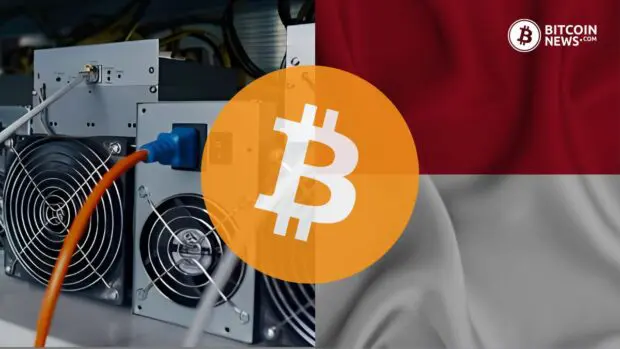In a recent development, Indonesian authorities have intensified efforts to combat illicit bitcoin mining operations, specifically targeting bitcoin miners involved in stealing electricity from the national grid. This crackdown underscores the need for stringent regulatory measures to maintain the integrity of the energy infrastructure.
Notably, over the Christmas weekend, Indonesian authorities executed a series of raids on ten sites suspected of unauthorized bitcoin mining activities tapping into the national grid. The targeted locations in Medan, North Sumatra, were found to house 1,314 bitcoin mining rigs, leading to the detention of 26 individuals involved in the alleged electricity theft.
It is important to note that the Indonesian law considers electricity theft as a criminal offense. The suspects allegedly stole electricity by tapping into utility poles owned by the state-controlled electricity company PLN over a span of six months. This reportedly caused losses estimated at 14.4 billion Indonesian rupees (around $100,000) to the state.
Context of Digital Asset Regulations in Indonesia
To understand the significance of this crackdown, it’s essential to consider Indonesia’s broader stance on digital asset regulations. While the country prohibits bitcoin as a payment instrument, it allows them to be traded as a commodity. This framework aims to strike a balance between fostering innovation in the digital asset space and mitigating potential risks associated with unregulated financial transactions.
The recent raid aligns with a global trend of governments taking decisive action against digital asset miners stealing electricity. In Malaysia, for instance, multiple mining centers were caught stealing electricity during a raid, leading to significant disruptions and outages in the energy supply.
As governments worldwide grapple with the impact of bitcoin mining on essential resources, these crackdowns underscore the pressing need for comprehensive regulatory frameworks to ensure responsible and legal mining operations.
Regulatory Shifts and Future Outlook
Meanwhile, Commodity Future Exchange (CFX), the world’s first national bourse for digital assets, is aiming to facilitate the tracking of digital asset transactions for taxation purposes in the country.
All digital asset exchanges must seek authorization to comply with regulations introduced in 2019 by the Indonesian Commodity Futures Trading Supervisory Agency (Bappebti).
Notably, existing exchanges in Indonesia, categorized as “prospective crypto exchanges,” undergo rigorous scrutiny, requiring registration with self-regulatory organizations like the CFX. The authorization process, including a fitness test by Bappebti, results in the issuance of a crypto exchange license (PFAK) if all criteria are met.
As per the latest update, failure to complete these procedures by the August 17, 2024, deadline will bar prospective crypto exchanges from operating in the country. Subani, president director at CFX, stated that there are 29 prospective digital asset exchanges that will require authorization.
He stated:
“All transactions within these prospective crypto exchanges are diligently reported and monitored. Our primary objective is to ensure a smooth transition from being a prospective crypto exchange to becoming a fully recognized crypto exchange.”
Additionally, an impending regulatory overhaul in 2025 may reclassify digital assets as securities under the jurisdiction of Indonesia’s Financial Services Authority (OJK).










